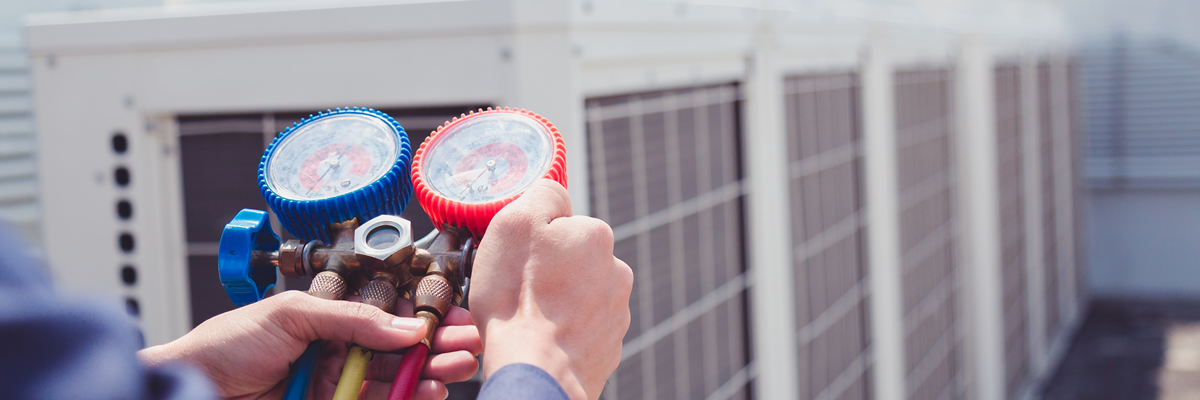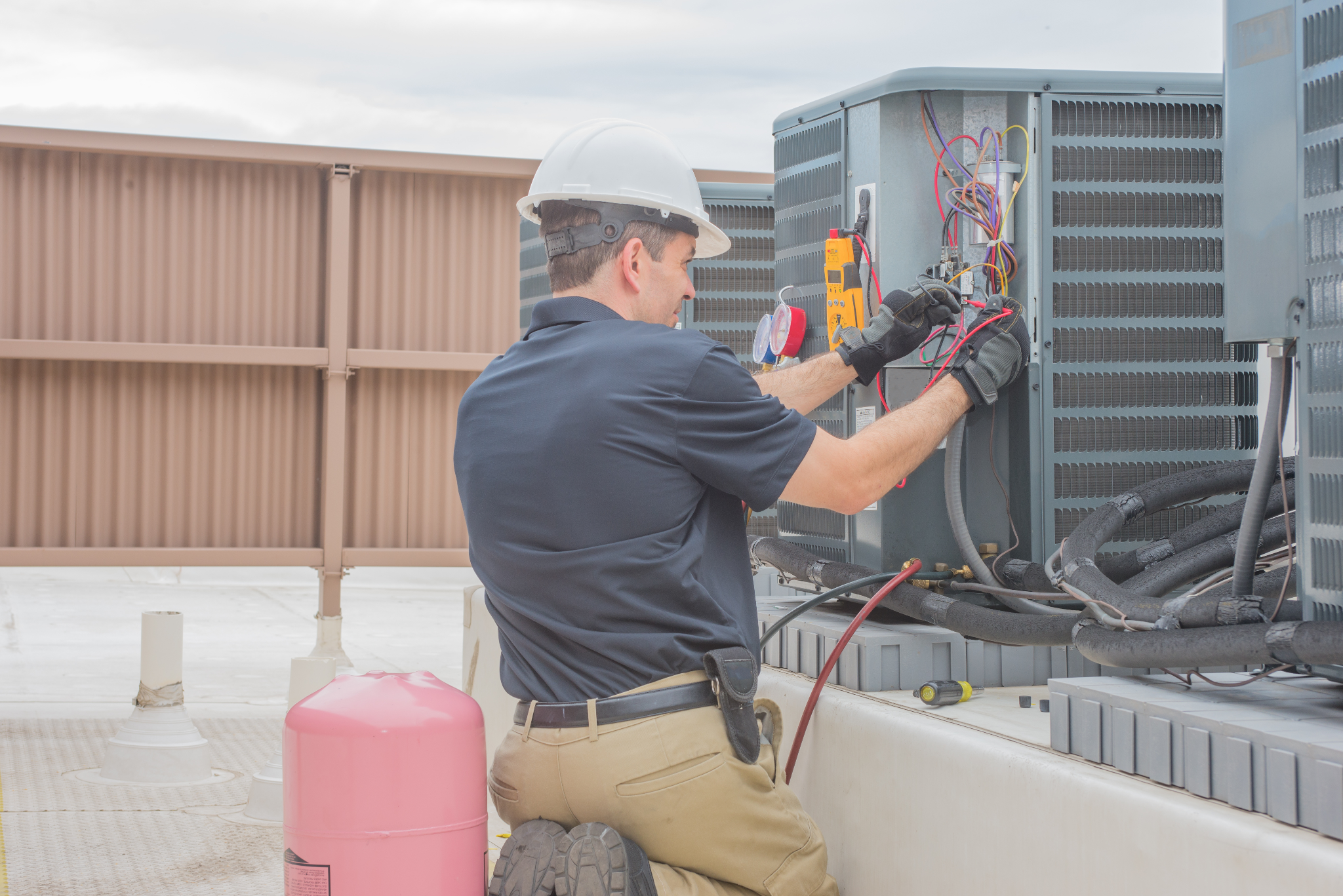Key Factors to Consider Before Your furnace replacement
Key Factors to Consider Before Your furnace replacement
Blog Article
Picking In Between a Warmth Pump and Heating System: Trick Considerations for Your Heating And Cooling Needs
When examining home heating alternatives for HVAC needs, the choice between a heat pump and a heater can be complex. Each system offers distinct advantages customized to specific environments and energy efficiency objectives. Understanding these differences is necessary for making an educated selection. Key factors such as setup costs and environmental influence better complicate the option procedure. Which alternative truly lines up with one's convenience and sustainability choices? The adhering to sections will discover these considerations thoroughly.
Understanding Heat Pumps: How They Function and Their Benefits
While many homeowners think about various heating alternatives, recognizing how heatpump function and their benefits can greatly affect their choice. Heat pumps operate by moving heat instead of producing it. In the wintertime, they extract heat from the outdoors air or ground and move it indoors, while in the summertime, they reverse this process, cooling the home by eliminating warmth outside. This double functionality makes them functional for year-round climate control.One of the main advantages of heatpump is their power performance. They utilize significantly less electricity compared to standard furnace, potentially leading to reduced energy bills (heat pump replacement ooltewah tn). Furthermore, heat pumps have a smaller sized carbon impact, making them an ecologically friendly selection. They also need less maintenance than traditional systems, contributing to long-term expense financial savings. Generally, comprehending the mechanics and advantages of heatpump can aid home owners make educated decisions concerning their heating and cooling down requirements
Checking Out Furnaces: Kinds, Operation, and Benefits
Heaters come in numerous types, consisting of gas, electrical, and oil versions, each with distinct operational systems. Comprehending these differences is crucial, as they influence effectiveness and home heating performance. Furthermore, heaters offer countless advantages, such as regular heat output and dependability in colder climates.
Sorts of Furnaces
Heating systems can differ considerably in design and procedure, with furnaces being a preferred option among house owners. There are a number of types of furnaces, each using various gas resources and innovations. Gas heaters are usual, leveraging natural gas to produce heat successfully. Electric furnaces, on the various other hand, utilize electrical resistance to create warmth, frequently favored for their uncomplicated installment. Oil heating systems, while less usual, are reliable in areas with minimal gas access (heat pump installation ooltewah tn). Furthermore, condensing heaters optimize power efficiency by recording and reusing exhaust gases. Each type operates through a system of heat exchangers and ductwork to disperse cozy air throughout a home. Recognizing the differences in between these heating system kinds is essential for informed a/c choices
Advantages of Heaters
For house owners seeking reputable heat throughout chilly months, the benefits of furnaces are significant. Furnaces give regular home heating, making certain also temperatures throughout the home. They are particularly efficient in severe chilly, commonly outperforming heatpump in cold problems. Various kinds, including gas, electrical, and oil heating systems, provide adaptability to meet diverse requirements and preferences.Furnaces also often tend to have lower initial installment prices contrasted to heatpump, making them an extra available option for numerous. Their durable design adds to a longer life-span, with several devices lasting over 15 years with proper upkeep. In addition, contemporary furnaces are often furnished with advanced modern technology for improved effectiveness, which can lead to lowered power expenses. On the whole, heating systems continue to be a trustworthy option for reliable home heating.

Energy Effectiveness: Comparing Heat Pumps and Furnaces
When contrasting power efficiency between heatpump and heating systems, the Seasonal Power Efficiency Ratio (SEER) plays a vital duty in identifying performance. In addition, a functional price evaluation exposes the long-lasting monetary effects of each system. Comprehending these elements can guide house owners in making notified choices about their heating solutions.
Seasonal Energy Effectiveness Proportion
Energy efficiency plays a vital function in the decision-making procedure in between heatpump and heating systems, particularly when taking into consideration the Seasonal Power Efficiency Ratio (SEER) This statistics actions the cooling performance of heatpump over a whole cooling period, offering a standard means to review efficiency. Higher SEER rankings indicate better energy efficiency, equating to reduced power consumption and lowered energy bills. In contrast, heaters are normally assessed utilizing the Annual Gas Usage Efficiency (AFUE) rating, which reflects heating performance. When comparing these two systems, property owners need to prioritize SEER scores for warmth pumps, as they straight impact general power cost savings and ecological sustainability. An extensive understanding of SEER can notably influence the lasting complete satisfaction and cost-effectiveness of the selected HVAC service.
Functional Expense Analysis
Comprehending the operational prices associated with warmth pumps and heaters is vital for house owners examining their options. Heatpump usually supply greater energy performance, converting electrical power right into warm with very little waste. This leads to lower month-to-month energy costs, especially in moderate environments. Conversely, traditional furnaces, especially gas versions, may have reduced upfront costs however can incur greater operational expenses with time as a result of sustain costs and effectiveness ratings.Moreover, heatpump can function as both heating and cooling systems, possibly lowering the requirement for separate cooling and heating devices. While preliminary financial investments for warmth pumps might be higher, their lasting financial savings in energy effectiveness can make them a more economical option for many households. Careful analysis of neighborhood power rates is important to identify the very best alternative.
Installment Prices: What to Expect for each and every Furnace
Setup prices for heating unit can differ substantially in between heatpump and heating systems, influencing home owners' choices. Heatpump generally have greater ahead of time installation expenses, usually ranging from $3,500 to $8,000, depending upon the system size and intricacy of installation. This includes the outdoor unit, interior handling system, and required ductwork alterations. Alternatively, furnaces have a tendency to have lower preliminary expenses, averaging between $2,500 and $6,000, which can be appealing for budget-conscious home owners. Installation expenditures can boost if comprehensive ductwork is required.Moreover, the option of fuel kind for heating systems-- all-natural gas, propane, or electrical-- can additionally impact installment expenses. While heatpump provide energy effectiveness, their initial financial investment may prevent some customers. Eventually, assessing installation expenses together with long-lasting financial savings and performance will aid homeowners in making notified choices regarding their furnace.
Environment Factors To Consider: Which System Performs Much Better in Your Area
Exactly how do environment conditions influence the performance of heating systems? The efficiency of warm pumps and heaters can differ significantly have a peek at these guys depending upon the neighborhood environment. In modest climates, heatpump stand out by effectively transferring warm from the outdoors air, making them an energy-saving alternative. Their effectiveness lessens in exceptionally cool temperatures, where they might battle to remove enough warm. On the other hand, furnaces, particularly gas designs, offer consistent and dependable warm despite outdoor problems, making them more suitable in colder regions.In locations that experience milder winters months, heatpump you could try these out can run properly year-round, giving both cooling and heating. In comparison, areas with severe winter seasons commonly gain from the effectiveness of heating systems. Inevitably, understanding the regional environment is crucial when making a decision in between a heat pump and a furnace, as it straight affects their functional performance and general efficiency.
Maintenance Requirements: Long-Term Look After Warm Pumps vs. Furnaces
While both heat pumps and heaters need regular upkeep to ensure peak performance, their details demands and care routines vary substantially. Heating systems usually need much less frequent interest, with yearly examinations sufficing to inspect for gas leakages, clean filters, and assess total performance. Their simpler layout typically enables uncomplicated repairs.In contrast, heatpump require semiannual maintenance due to their twin role in cooling and heating. This consists of cleansing coils, inspecting cooling agent levels, and making sure that both the outdoor and indoor devices function at their finest. Additionally, warm pump maintenance commonly involves more detailed components, making expert maintenance essential.Neglecting maintenance can cause diminished effectiveness and boosted energy expenses for both systems. Inevitably, house owners must take into consideration these lasting care demands when picking in between a heatpump and a heating system, as positive upkeep can expand the lifespan and performance of either system significantly.
Ecological Influence: Picking a Lasting Home Heating Option
The environmental impact of heating systems is a critical evaluation for property owners looking for sustainable choices. Warm pumps are normally a lot more energy-efficient than traditional furnaces, as they transfer heat as opposed to create it, significantly decreasing carbon exhausts. By utilizing sustainable energy resources, such as air-source or geothermal warm pumps, house owners can further minimize their ecological footprint.On the other hand, gas heaters produce greenhouse gases and add to air contamination, though they usually supply greater warmth result. However, improvements in innovation have caused the development of high-efficiency furnaces that decrease emissions.Ultimately, selecting a furnace includes evaluating performance against environmental influence. Property owners are encouraged to mirror on regional energy resources and rewards for renewable systems, making certain a choice that aligns with both personal comfort and environmental obligation. The decision affects not just instant comfort however also lasting sustainability and environmental wellness.
Frequently Asked Inquiries
The Length Of Time Do Warm Pumps and Furnaces Usually Last?
The lifespan of heatpump generally varies from 15 to 20 years, while furnaces can last between 15 to 30 years. Normal maintenance considerably impacts their longevity and effectiveness in providing home heating solutions.
Can I Utilize a Warmth Pump in Incredibly Cold Climates?
Heat pumps can operate in very chilly environments, but their effectiveness diminishes as temperature levels decrease. In such problems, supplementary home heating sources may be required to preserve comfy interior temperature levels and ensure peak performance.

What Is the Sound Level of Heat Pumps Versus Furnaces?
The sound levels of heatpump and heaters differ substantially. Typically, heatpump operate even more quietly than traditional heaters, making them better for those conscious sound, while heaters may generate louder operational sounds during home heating cycles.
Are Warm Pumps Suitable for Both Heating & Cooling?
Heat pumps are indeed appropriate for both heating and air he has a good point conditioning (heat pump replacement ooltewah tn). They work by moving heat, giving effective temperature level control year-round, making them a functional choice for home owners seeking an all-in-one HVAC option
What Dimension Heating Unit Do I Required for My Home?
Determining the proper size heating unit for a home calls for assessing variables such as square footage, insulation top quality, local climate, and the home's format. Consulting a professional can ensure a precise analysis and perfect convenience. Warmth pumps usually supply higher energy performance, transforming electrical power into warm with very little waste. In moderate climates, warm pumps succeed by successfully moving warmth from the outside air, making them an energy-saving alternative. Alternatively, heating systems, specifically gas designs, provide consistent and trustworthy warm no matter of outdoor conditions, making them better in cooler regions.In locations that experience milder winter seasons, warm pumps can operate efficiently year-round, giving both heating and air conditioning. Warm pumps are normally a lot more energy-efficient than typical furnaces, as they move warmth rather than generate it, greatly reducing carbon discharges. By making use of sustainable power resources, such as air-source or geothermal warmth pumps, home owners can further reduce their environmental footprint.On the other hand, natural gas heating systems release greenhouse gases and add to air contamination, though they often give higher warmth outcome.
Report this page